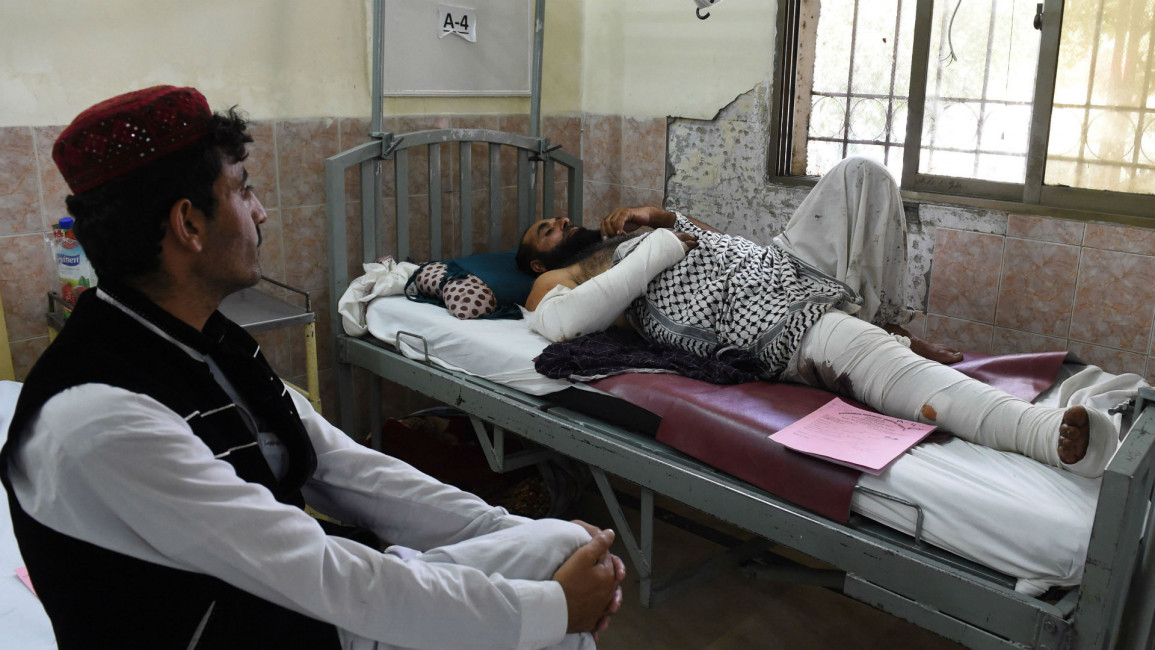Death toll from Pakistan rally blast increases to 130
The death toll in one of the most lethal attacks in Pakistan's history increased to 130 people, an official said on Sunday, as top politicians joined a day of national mourning.
Friday's attack was the latest in a series of blasts at various election campaign events that have killed at least 156 people ahead of national polls on July 25.
A suicide bomber detonated as local politician Siraj Raisani spoke to a crowd of supporters in southwestern Mastung district, in an attack claimed by the Islamic State militant group.
Raisani was among those killed.
A further 127 people remained in hospital with five in critical condition, provinical information minister Khurram Shehzad said.
Friday's toll is topped by only two other attacks in Pakistan's history.
In 2007, a bomb attack in Karachi targeting former premier Benazir Bhutto killed 139 people, while an attack on a school in the northwestern city of Peshawar in 2014 left more than 150 people dead, many of them children.
The updated casualty figures from the Mastung attack were issued as politicians, including high-profile election candidate and former international cricketer Imran Khan, visited provincial capital Quetta to pay their respects to the dead.
"It was a huge tragedy," Khan told a press conference, calling for the military, police and civilian government to prevent further attacks.
Shahbaz Sharif, brother of ousted premier Nawaz Sharif and rival to Khan, also visited Quetta on Sunday and called for the attack's culprits to face "exemplary" punishment.
The visits came hours after funeral prayers were offered for Raisani in a ceremony attended by Pakistan's powerful military chief General Qamar Javed Bajwa.
Raisani's body was then driven from Quetta to his ancestral home of Kanak, near where he was killed, for a second set of funeral prayers tightly guarded by paramilitary forces.
He was laid to rest beside the grave of his son Akmal, who was killed in a grenade attack in 2011. Raisani's father and other male relatives, killed in tribal warfare, are also all buried there.
One of the mourners in Kanak, Ali Ahmad, said "no house in the area" had been unaffected by the attack.
"Every eye is tearful," he said.
Two of his nephews had attended the rally in order to taste the cold sweet syrup that political parties often serve at such events, he said. They were both killed.
Mohammad Shoib, who had attended the rally but escaped with just minor injuries, said the moments after the blast were "terrible".
"Everybody there, like me, was helpless - all they could do was wail or cry", he said through tears.



